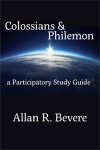Skepticism and Scholarship
Ben Witherington comments on an attitude of skepticism on his blog in an entry titled Justification by Doubt. Dr. Witherington makes a number of good points, but I think the topic at a minimum needs more comment. I’d like to suggest you read his entire post before you read mine. I’m going to quote his conclusion, but you need to read his entire post for context.
Skepticism is no more scholarly than gullibility. But they both have one thing in common


A great statement to which I whole heartedly subscribe.
H>> Probably the clearest case I encounter on this is the issue of Biblical inerrancy. Is acceptance or rejection of Biblical inerrancy an equal bias? I am regularly told that it is, but I disagree. If I make the assumption that there can be no error in the Bible, then I approach each particular case with one less option. I must find an answer that does not involve stating that there is an error in the Bible. Lacking an assumption of inerrancy, that option becomes a possibility. The true reverse of an assumption of inerrancy would be an assumption of error, not merely the possibility of error.
Isn’t that simple? There is no error in the statements of faith contained in the Bible. Those are statements of the faith of the writers. The statements themselves are not in error, but the writers potentially might be. Except, if inspired, they are not in error as to *how God manifested himself to them*.
They cannot presume how God may have manifested himself to me, though (and he has). Or, indeed to any other person. I know only my own experience. I *hear* of other’s experience, Baha’Ullah, Joseph Smith, for instance. I do not presume that their accounts are invalid (despite, in the second case, a degree of “decoration” )